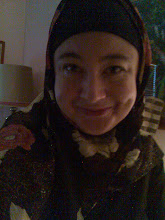
The signs at Srinagar airport say “Welcome to Heaven”. Little lines of pansies prostrate themselves under the wind on the way into the terminal. A Sikh signs me in with a form that asks me where I am staying and when I will exit Jammu & Kashmir. I half expect to have to show my passport but he grins at me and waves me through. I am in northern India, but it may as well be another country. I’ve never been to heaven but I am sure that it doesn’t have this many soldiers.
I sit in the back of Toyota Qualis, swaying like a sack of potatoes without a seat belt. I am sitting near the door, worried it may swing open at any time and deposit me in the path of a Tata lorry or a Bajaj scooter. We are barrelling down tight streets that look like Europe, but smell like India.
Jammu & Kashmir is the northern-most state of India. At least that is what most of the world thinks it is when they bother to think of it at all. More accurately it is 101 000 km² of contested land inhabited by seven million people that wish that Pakistan, India and China would get out of the way and let them live in peace.
Due to some diplomatic apathy and political bloody-mindedness about 60 years ago involving the UN, Nehru, and an instrument of accession, Jammu & Kashmir has been occupied by Indian soldiers in the most densely concentrated military build-up in the world. That’s right. There are more soldiers here per head of population than Palestine.
My government advises that no Australian should travel here. It’s easy to understand why. On the outside Jammu & Kashmir looks like a dangerous place. There are regular grenade explosions, clashes with militants in the border regions, terrorists infiltrating the city, landmines, civil unrest, and kidnappings.
I am here though, despite the misgivings of my family, to travel with two Kashmiri friends. I have a gut feeling that I will be safe with them and this proves correct, however, what I don’t anticipate, is the danger that they face every single day.
Tariq and Haaziz have grown up in Srinagar. Tariq comes from the city part of Srinagar, the summer capital of Jammu & Kashmir. It is a bustling Indian city with a difference. Most of its people are Muslims. The women get around mainly yellow, green and blue salwah kameez and hijab. The men wear white kurtas and niqab or western style slacks, shirts and ties. This side of town is traditionally known as the militant side of town. It has the oldest mosque in Srinagar, and the Martyr’s graveyard.
Haaziz lives in Nageen lake, a small lakelet within the Dal Lake system. His is a semi-rural life on a tiny piece of land bounded by two houseboats. The Doonga is the family’s boat, where everyone sleeps in three rooms, all rugged up together in temporary bedding that is packed up in the morning under rugs. There is a detached kitchen shed and bathroom and tiny yards for ducks and chickens. Dogs and cats visit everyday and try their luck for scraps and Haaziz' mother has had a cote built for her white pigeons.
A large houseboat with fancy furnishing and carpets is the family’s tourist property which provides income for five people. It operates six months of the year until the snow comes. Anything that upsets this idyll severely affects this family and the many family’s that rely on the tourist trade.
Even though Haaziz and Tariq are as different as chalk and cheese in their upbringings and outlook, they have something in common. They have grown up in a country that has been occupied. They both refer to Jammu & Kashmir as Kashmir. They relate to it as a separate country. They both love India, especially the cricket, and both revere Ghandi but when it comes to India’s claim on Kashmir they draw the line. They have seen too much death at the hands of the soldiers to remain rational about the geopolitics of the region.
These men are ordinary law abiding citizens in their twenties. They are interested in everything else that young guys are into, chatting up pretty girls, shopping for the latest fashion, smoking and drinking and hanging out talking trash with their mates. Neither of them would hurt a fly.
When we were stopped twice within two hundred metres at roadblocks by soldiers they got out of the rickshaw and protested. Even though one of the soldiers became pushy and said something rude about me, they remained calm. They argued rationally, showed their IDs’ and got back into the rickshaw.
I could tell that they were used to this behaviour. Two men that were previously chattering and laughing were now sullen and humiliated.
“That would not happen if Pakistan were running Kashmir”, says Tariq.
“Shuttup with that shit”, retorts Haaziz. I catch the eye of the rickshaw driver Mohammed. He is Haaziz' cousin. He is orthodox Muslim with a white niqab framing gentle eyes. He smiles back at me in the rearview mirror. It is a smile of resignation.
“Next time, I’m getting out”, I say. “Maybe they won’t be so obnoxious with a westerner as a witness”.
Haaziz pats my hand. “Don’t be worried. Here is safe.” He looks out at the street flashing by, unconvinced.
Tariq is quiet. I can’t see his eyes through his sunglasses but I can tell he is seething.
I settle back into my seat and stare out through the windscreen. Another road block is coming up. I remember the sign at the airport.
Welcome to Heaven.
Copyright 2008 Leah Cornish-Ward
Unedited




